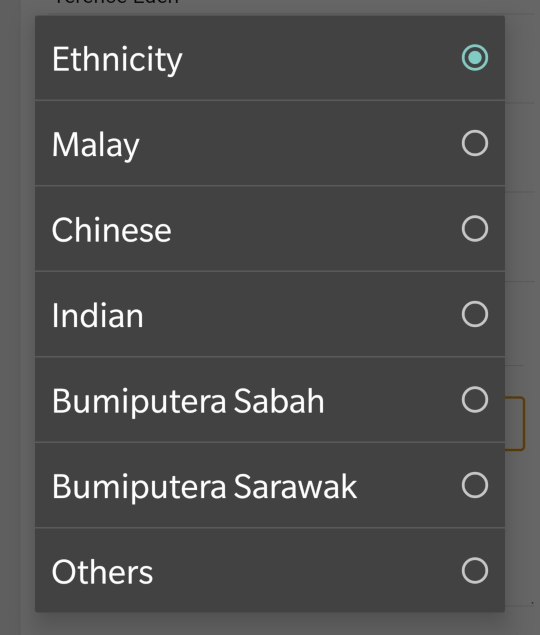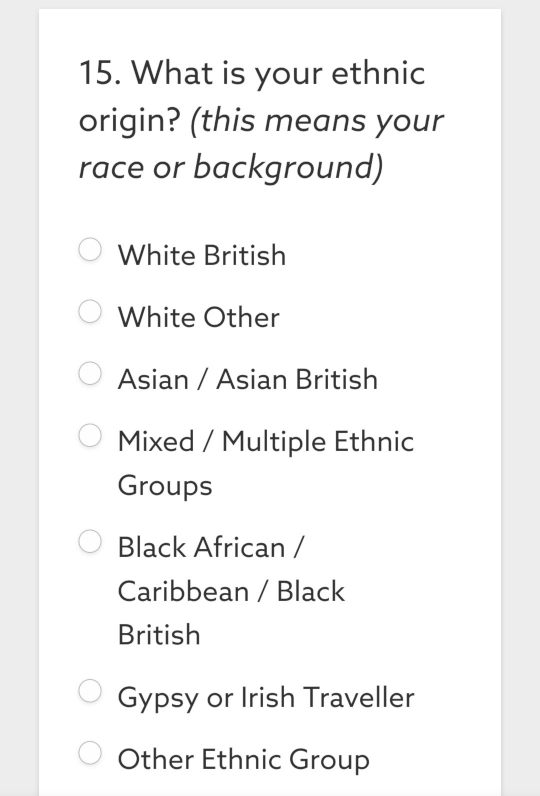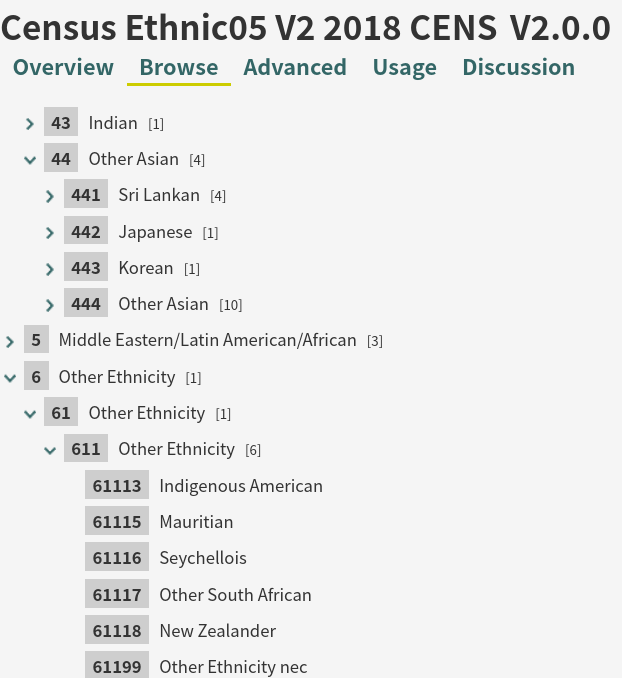I've been reading lots of books about race, justice, and history. One of the things which confused me when I started this journey was the notion that race is a construct.
But then I started reading about how Blumenbach literally invented the concept of distinct human races. And about how the discredited "Science" of race is making a comeback. And then about the Philosophy of Race weaves its pernicious influence. And I found it illuminating.
Of course, theorising is a different experience to lived reality.
I visited Kuala Lumpur recently. As I registered for various apps and websites, I kept being asked the same question - "What is your ethnicity?"
Here are the options I was commonly given:

One app went a little further:

I was very literally being othered.
By contrast, here's the "What is your ethnicity" form presented to me by a recent NHS survey in the UK:

Race, ethnicity, background, tribe. They're all important in context. The number of Latina/Latino people in the UK is negligible compared to the USA0. I doubt there are many Irish Travellers in Malaysia. There are large numbers of Japanese and Korean people in the UK - but they all get lumped under "Other Asian".
Here's how the England and Wales Census records ethnicity:
It is important to understand that race is a social construct.
For example, the Census questionnaire in South Africa asks if you are "Black African, Coloured, Indian or Asian, White, Other". What is "Coloured"? If you identify as such, which box would you tick on the UK census?
The US Census has ethnicity categories for "American Indian or Alaska Native" and "Hispanic or Latino". Where do people in those categories fit in with, say, the South African census?
The New Zealand Census has 180 different categories for ethnicity!

Do all these "races" exist? If one of your grandparents is Japanese, one Coloured, one White Irish, one Bumiputera - what box do you tick?
It is important to make sure you aren't discriminating against people. And it can be useful to know the demographics of people who are interacting with you. And, sure, you probably want broad enough categories which are relevant to your culture.
But... Are you measuring something which meaningfully exists?
-
As an amusing aside, I remember being told by an American acquaintance that I must be super racist to have never been invited to a quinceañera, or to have never eaten Mexican food. They couldn't get their head round the idea that, when I was growing up, there were only around 5,000 Mexicans in the UK and Taco Bell was non-existent. ↩︎
3 thoughts on “A practical example of the social construct of race”
@Edent Not just a social construct but a highly motivated construct---the invention of a white racial identity was motivated from the start by a need to justify the enslavement of Africans. In the words of Eric Williams, a historian who later became the first prime minister of Trinidad and Tobago, “slavery was not born of racism: rather, racism was the consequence of slavery”.---https://www.theguardian.com/news/2021/apr/20/the-invention-of-whiteness-long-history-dangerous-ideaThe invention of whiteness: the long history of a dangerous idea
| Reply to original comment on mastodon.me.uk
Something can meaningfully exist whilst still being entirely socially constructed (eg national/regional identity, religion, languages…).
The question over whether it’s more helpful than harmful to survey people for ethnicity is a good question to pose though. In some countries it’s illegal to ask the question, whilst in others it is practically required.
Here’s an interesting blog post from an ex-colleague on the (shocking) history of how the question has been asked in the UK: https://history.blog.gov.uk/2019/03/07/50-years-of-collecting-ethnicity-data/
Paul L
This was an issue at my last employer. We would send out surveys, one of the questions regarded race. We had started out using the ONS classification, but this became a problem as soon as we got US customers. It became even more of an issue when we started dealing with multi-national companies.
In the end we changed all those questions to something along the lines of "Do you regard yourself as a member of a racial minority?" (not exact wording). Not only did it avoid the classification issue, but it actually focused on the question that we were trying to answer, which was whether our customers had a problem with racial bias in their hiring processes. The actual "race" of the candidate was irrelevant at the level we were addressing.
It was a great example of software that asks one question in order to answer a different one (like asking for gender when you actually just want to know how to address your emails to the customer).
Adam Rutherford (geneticist and broadcaster) has had some great rants in the past about the falacy of "race" as a scientific idea, and how the boundaries between supposed races are social constructs overlaid onto group differences. He has a great/depressing three-part radio documentary about it and the rise of eugenics called "Bad Blood".
More comments on Mastodon.
What links here from around this blog?